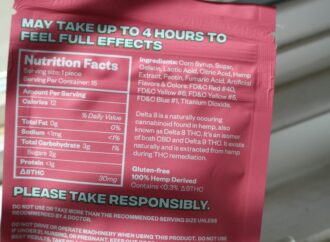 Proper labeling of food and food products is essential to ensure consumer safety, promote transparency, and enable informed choices. The Food Safety and Standards Authority of India (FSSAI) has established rules and regulations to govern food labeling practices.
Proper labeling of food and food products is essential to ensure consumer safety, promote transparency, and enable informed choices. The Food Safety and Standards Authority of India (FSSAI) has established rules and regulations to govern food labeling practices.
General Laws and Regulations
- Mandatory Information: The labeling must include essential details such as the name of the food product, its ingredients, nutritional information, net quantity, vegetarian/non-vegetarian status, and the FSSAI logo with license/registration number.
- Allergen Declaration: The presence of common allergens, such as milk, eggs, nuts, or gluten, must be clearly mentioned on the label to protect consumers with food allergies.
- Date Marking: The labeling should display the manufacturing date, best before/use by date, and batch/lot number to ensure product freshness and traceability.
- Language and Legibility: Labels should be in a language understood by the consumer and printed in a legible manner, ensuring easy comprehension and visibility of information.
Advantages of Proper Labeling
- Consumer Safety: Clear and accurate labeling helps consumers make informed choices, especially regarding allergens, nutritional content, and dietary restrictions. It minimizes the risk of allergic reactions and enables individuals to select products aligning with their health needs.
- Product Information: Labels provide vital information about ingredients, additives, and nutritional values. This empowers consumers to assess the quality, composition, and suitability of food products, supporting a healthy and balanced diet.
- Transparency and Trust: Adequate labeling establishes trust between consumers and food manufacturers. It demonstrates a commitment to transparency, ethical practices, and regulatory compliance, enhancing the reputation of food businesses.
- Market Competitiveness: Proper labeling enables businesses to differentiate their products in a crowded marketplace. Clear and attractive labels can attract consumers, communicate product benefits, and create brand loyalty.
Penalty for Non-Compliance

- Warning and Notices: FSSAI may issue warnings or notices to non-compliant businesses, directing them to rectify labeling discrepancies.
- Financial Penalties: Violators may face monetary penalties based on the severity of non-compliance. The fines can range from warning letters and fines to suspension or cancellation of FSSAI license/registrations.
- Seizure and Recall: In cases of serious non-compliance posing a significant risk to consumer health, FSSAI may order the seizure and recall of the non-compliant products from the market.
Conclusion
Proper labeling of food and food products is crucial to ensure consumer safety, foster transparency, and enable informed choices. Adhering to the regulations set by FSSAI not only safeguards consumers but also offers advantages to food businesses, including trust, market competitiveness, and enhanced brand reputation. Non-compliance with labeling rules can lead to penalties and repercussions for food businesses. By prioritizing accurate and comprehensive labeling, we can create a food industry that prioritizes consumer welfare and empowers individuals to make informed decisions about the food they consume.
 Food Manifest
Food Manifest 















Leave a Comment
Your email address will not be published. Required fields are marked with *